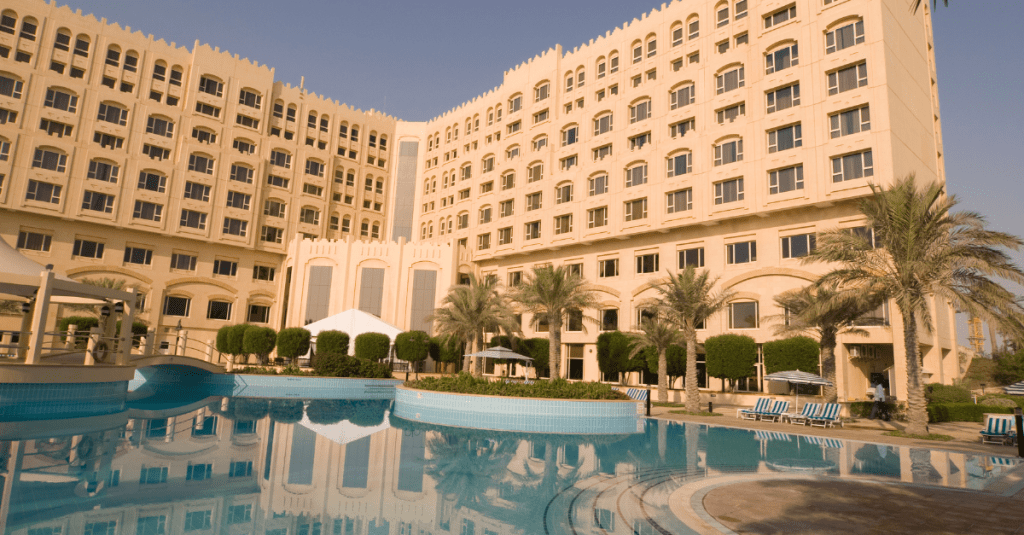Hotels are at heightened risk for Legionella contamination because they often have complex water systems that serve numerous guests and staff members. These systems include showers, faucets, hot tubs, cooling towers, and other water-based amenities, all of which can harbor and spread Legionella bacteria. If Legionella bacteria are present in a hotel’s water system, they can be transmitted through tiny water droplets that are inhaled by guests or employees, potentially leading to an outbreak of Legionnaires’ disease.

Legionella bacteria are primarily transmitted when individuals inhale small droplets of water that contain the bacteria. This can occur during activities such as showering, bathing, or using a whirlpool spa. Although less common, Legionella can also be transmitted through drinking water systems.
Hotels are particularly at risk for Legionella contamination due to their complex water systems, which include a variety of fixtures and appliances. These systems often create ideal conditions for the growth of Legionella, including warm water temperatures, stagnant water, and the presence of biofilms. These factors contribute to the increased risk of Legionella outbreaks in hotel environments.
To effectively prevent Legionella in hotels, it is essential to implement a comprehensive water management program. This program should include several key components:
Water treatment plays a crucial role in preventing the growth and spread of Legionella in hotel water systems. Chlorine disinfection is one of the most common methods used for this purpose. Chlorine is a powerful disinfectant that can effectively kill Legionella bacteria; however, it must be used at the correct concentration to avoid corrosion of water system components.
Other water treatment technologies that are effective in controlling Legionella include:
Selecting the most appropriate water treatment system for your hotel depends on several factors, including the size and complexity of your water system, your budget, and your specific water quality goals. It is highly recommended to consult with a qualified water treatment professional to determine the best system for your needs.
Implementing a comprehensive water treatment program is a critical component of Legionella control in hotels. By doing so, hotels can significantly reduce the risk of Legionnaires’ disease and Pontiac fever, thereby protecting the health and safety of their guests and staff.
Legionella is a bacteria that can cause Legionnaires’ disease, a severe pneumonia-like illness, and Pontiac fever, a milder illness. Legionnaires’ disease can be fatal, making it a significant health risk in environments like hotels where water systems can harbor the bacteria.
Legionella is transmitted when people inhale small droplets of water that contain the bacteria. This can happen during activities such as showering, bathing, or using a whirlpool spa. Transmission through drinking water systems is less common but possible.
Hotels are at higher risk for Legionella because they have complex water systems with many fixtures and appliances, creating conditions such as warm water, stagnation, and biofilm presence, which are conducive to the growth of Legionella bacteria.
Hotels can prevent Legionella by implementing a comprehensive water management program that includes risk assessment, engineering controls, regular water monitoring, and having a response plan in place to address any detected contamination.
Common water treatment options for Legionella include chlorine disinfection, chlorine dioxide, ultraviolet (UV) light, and ozone. The choice of treatment depends on the specific needs of the hotel’s water system and should be selected in consultation with a water treatment professional.